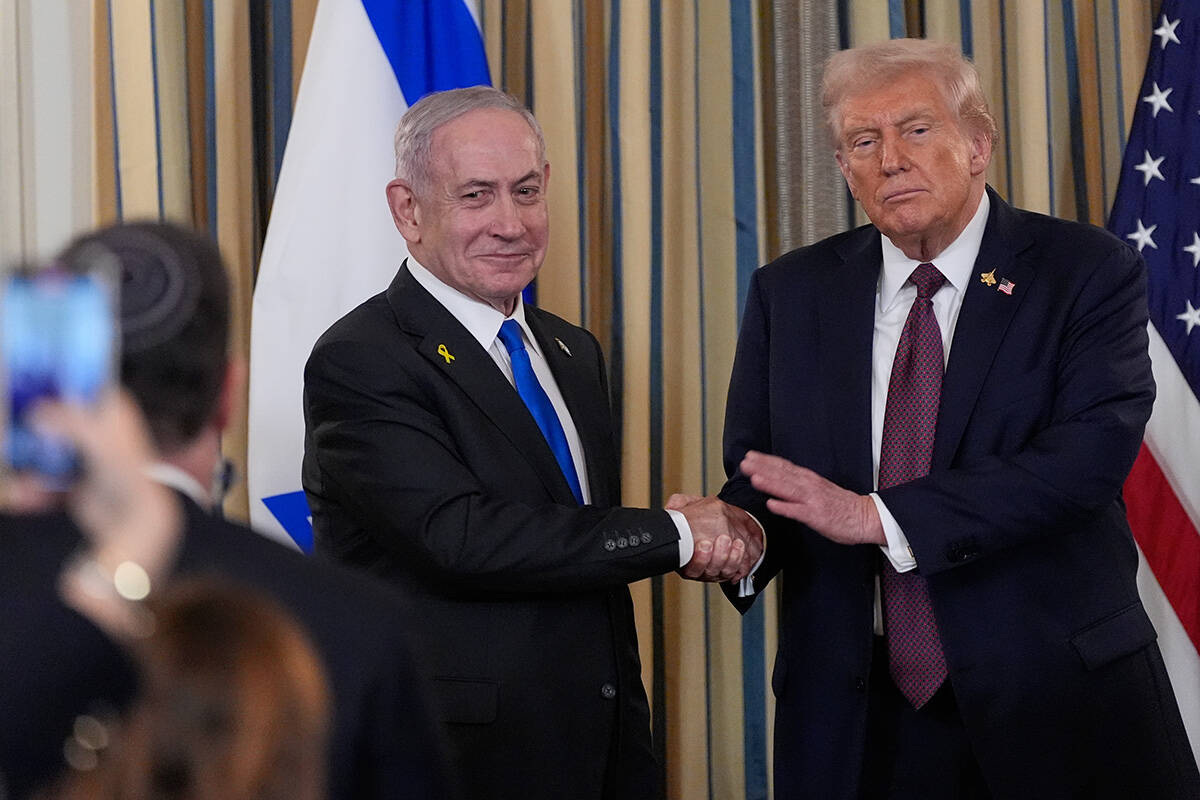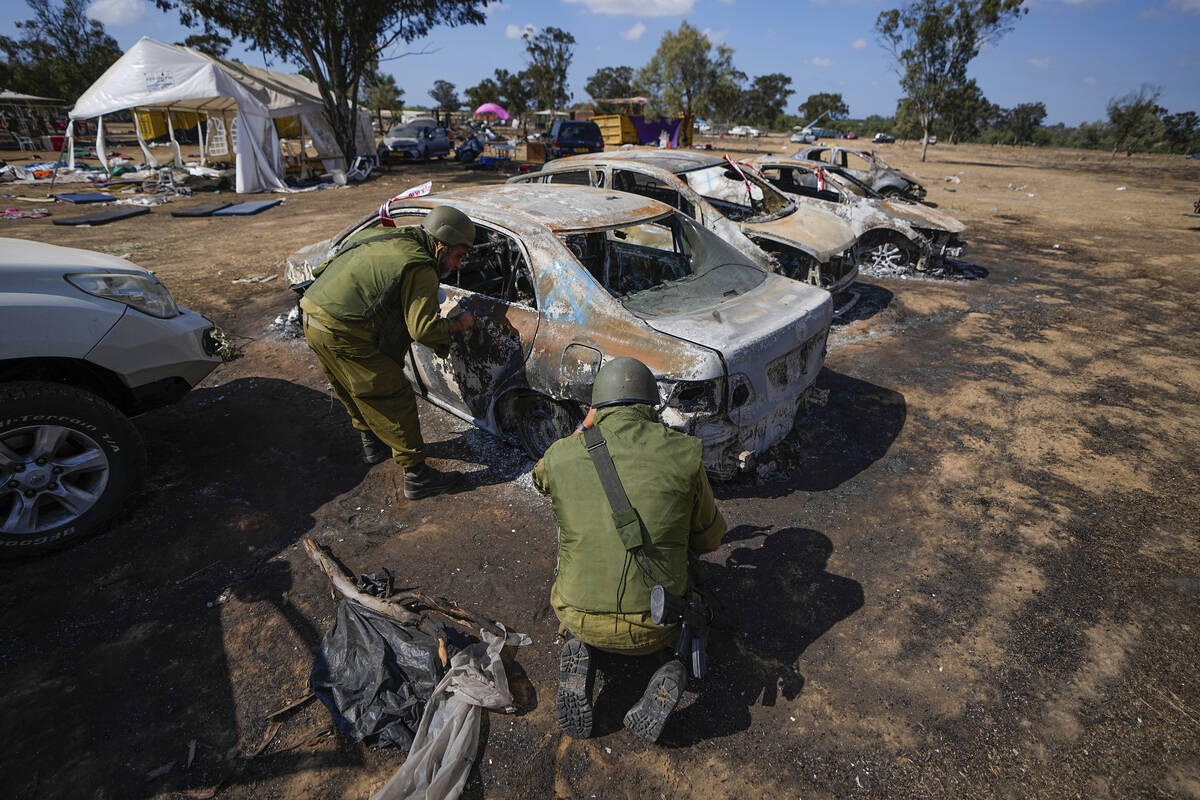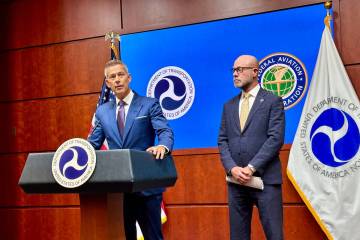SAUNDERS: Two years later, ‘much of the world no longer remembers October 7th’
WASHINGTON — The brutal Hamas-led attacks in Israel on Oct. 7, 2023, left some 1,200 dead. I never would have predicted that, two years later, Hamas would continue to imprison hostages and be rewarded with increasing recognition of a Palestinian state.
Terrorists proudly documented their brutality for the world to see.
“The astonishing fact was that at more than thirty locations, more than 3,000 Hamas fighters, along with numerous Palestinian civilians, had broken through the fence between Israel and Gaza,” Fox News Chief Foreign Correspondent Trey Yingst wrote of that day in his book, “Black Saturday: An Unfiltered Account of the October 7th Attack on Israel and the War in Gaza.”
“Hamas gunmen were going door-to-door, systematically executing civilians. In some homes, grenades were thrown into living rooms and bedrooms. In others, children were shot in front of their parents, their bodies disfigured. Terrified residents clung to their bomb shelter doors as militants fired on the handles,” Yingst wrote of Hamas’ Operation Al-Aqsa Flood. “When they were unsuccessful at breaching the rooms, Hamas burned houses down, reducing the people inside to ash after they suffocated from the smoke. Those not immediately killed were kidnapped and taken hostage into Gaza.”
At Harvard, pro-Palestinian students jumped into action with a statement that held “the Israeli regime entirely responsible for all the unfolding violence.” Which, in America, used to be known as blaming the victims.
Meanwhile, progressive activists turned big-name university quads into their own private camping grounds, classrooms were occupied and scholarship took a holiday. To their shock, many Jewish students faced virulent antisemitism at institutions they thought would shield them.
Since the initial horror of the worst violence against Jews since the Holocaust, the international community’s focus sadly has moved from shock and revulsion at what Hamas planned and executed to a condemnation of Israel for defending itself.
A forgotten atrocity
During September’s U.N. General Assembly, dozens of delegates walked out during Israeli Prime Minister Benjamin Netanyahu’s scorching address, in which he observed, “Much of the world no longer remembers October 7th.”
Even stalwarts are feeling the heat. Italian Prime Minister Giorgia Meloni, a supporter of Israel, recently argued, “Israel has exceeded the limits of proportionality.”
What does that even mean? Foundation for the Defense of Democracies Executive Director Jonathan Schanzer wondered.
Schanzer told me that he cannot remember when international pressure to end a conflict was wielded against the actors who did not initiate hostilities.
“The Israelis seem to have a unique fate,” Schanzer said. “It seems like actually every time the Israelis fight back against their aggressors, within a short amount of time, they are pressured to stop fighting.”
A recent New York Times/Siena poll captures the change in public sentiment. In 2023, nearly half of Americans sympathized more with Israelis, while 1 in 5 sympathized more with Palestinians. Now 34 percent sympathize more with Israelis and 35 percent more with Palestinians.
Palestinian deaths in the Israel-Hamas war had exceeded 65,000 in September, according to the Hamas-run Gaza Health Ministry. The group’s body count conveniently does not distinguish between citizens and terrorists.
Apparently that’s by design. In August, senior Hamas member Ghazi Hamad told Al Jazeera, “The initiative by several countries to recognize a Palestinian state is one of the fruits of October 7.”
Which now sounds a lot like “Mission accomplished.”
As far as Hamas leadership is concerned, the cost in Palestinian lives was worth it, Brian Katulis, senior fellow of the Middle East Institute, told me.
Trump wants end to war
President Donald Trump, however, wants to end the killing by ending the war in Gaza. And that changes everything.
Monday at the White House, Trump and Netanyahu announced a 20-point plan to end the war that includes the immediate release of “all hostages, alive and deceased,” amnesty for Hamas members who agree to disarm, and, following the hostage release, freedom for 250 prisoners and 1,700 Gazans detained after Oct. 7, 2023.
No one will be forced to leave Gaza, according to the plan. “Gaza will be redeveloped for the benefit of the people of Gaza, who have suffered more than enough,” the plan noted.
According to one provision, Hamas and other terrorist factions would agree to have no role in the governance of Gaza.
There also would be a new international transitional body, a “Board of Peace” led by former British Prime Minister Tony Blair and — wait for it — Trump.
On Friday, Hamas offered conditional acceptance of some of the terms, including a stated intention to release all hostages, but wanted clarification on other terms. Trump had given Hamas until Sunday to accept the plan in its entirety. As of Saturday night, no hostages had been freed.
If Hamas rejects the deal, Trump told Netanyahu, “Bibi, you will have our full backing to do whatever you have to do.”
So if the war drags on and on, blame Hamas terrorists, not Netanyahu and Israel.
Qatar, Pakistan, Jordan, the United Arab Emirates, Indonesia, Turkey, Saudi Arabia and Egypt signed onto a statement supporting the Trump plan.
The 20-point plan omitted mention of a key Netanyahu goal, the annexation of the West Bank.
‘Smoothing of tensions’
“The key tangible takeaway … was the smoothing of tensions between Israel and Qatar,” Katulis offered.
Katulis has other issues with the plan. “Like the Holy Roman Empire which wasn’t very holy or Roman, this is not much of a plan and won’t likely lead to much of a peace,” Katulis responded. “It’s a fig leaf for the current Israeli government to avoid where the consensus in the Middle East is, in favor of a two-state solution.”
“It also lacks a principle of getting a commitment from the Israeli right and violent settlers for peaceful co-existence,” Katulis added.
As far as the remaining hostages and their families are concerned, however, the 20-point plan would change everything, because the fourth point says, “Within 72 hours of Israel publicly accepting this agreement, all hostages, alive and deceased, will be returned.”
Originally, the hostages numbered more than 250. In September, Amnesty International put the number at 48 with approximately 20, all men, believed to be “still alive.”
Yingst noted on Fox News, after the plan’s release, “There’s a lot at stake here for the Palestinian people. We have to remember, tens of thousands of Palestinians have been killed by Israeli strikes over the past two years inside Gaza. The vast majority of the population has been displaced from their homes and much of the Gaza Strip is leveled. President Trump is offering the Palestinian people to stay in Gaza, not be forcefully displaced, on top of that offering them billions of dollars in regional support to rebuild homes in the Gaza Strip with a new peaceful, moderate government.”
It is as good a deal as Hamas would have any reason to expect.
“But,” as Yingst noted, “this requires Hamas to lay down their arms and release the hostages.”
Contact Review-Journal Washington columnist Debra J. Saunders at dsaunders@reviewjournal.com. Follow @debrajsaunders on X.






















